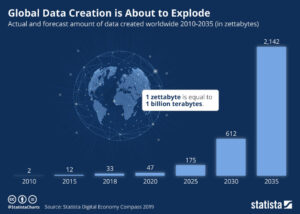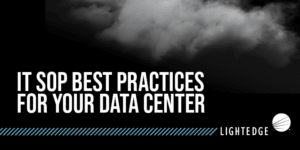In the realm of cloud computing, the names AWS and Azure have become synonymous with innovation and scalability, so much so, that often people don’t even realize that there are other clouds available. While these giants in the cloud space do command the largest market share and have impressive capabilities, it’s crucial to recognize that they are still just a part of a much larger cloud ecosystem. In this article, we’ll explore the diversity of public cloud providers, define what a public cloud is, address the fallacy of one-size-fits-all solutions, and answer whether a cloud solution is the ultimate answer for every business (spoiler: it’s not).
1 – Beyond AWS and Azure
The world of cloud computing is rich with providers offering unique sets of features and capabilities. VMware Cloud, IBM Cloud, Oracle Cloud, and others are among the many alternatives to AWS and Azure providing specialized services catering to diverse business needs. This variety empowers businesses to explore solutions that are tailored to their specific requirements, rather than conforming to a standardized mold. So how does a business decision-maker choose among these cloud options? To better understand the cloud and its options, one should understand the difference between public and private cloud.
2 – Public vs. Private Cloud
At its core, the cloud business model is a service offering computing resources—such as servers, storage, and databases—over the internet. The public cloud, often referred to as multi-tenant clouds or virtual private clouds in which customers share these computing resources from a third-party provider to virtualize their workloads and applications without having the need to own physical infrastructure and provide a flexible, pay-as-you-go model that can adapt to changing needs. This makes it an attractive choice for businesses seeking efficiency, scalability, and cost-effectiveness. Despite the “public” part of its name, a properly configured cloud will be just as secure and as viable as a private cloud. AWS, Azure, and VMware Cloud are all public clouds and are considered hyperscalers, signified by having massive amounts of infrastructure that spans globally.
In a private cloud, also called a single-tenant or dedicated cloud, customers will get their own set of resources that is isolated and separate from anyone else’s. While public cloud may be appropriate for most businesses, many with strict compliance requirements may require private clouds.
3 – Tailored Solutions: Recognizing the Lack of Universality
So perhaps you’ve narrowed it down and realize that a public cloud is right for your business. Now it’s just a matter of choosing the “best” cloud with the highest reviews, right? It’s an appealing notion to believe that there’s a single cloud solution capable of catering to every business scenario. However, reality is more intricate. Every organization possesses its own unique set of goals, challenges, and operational nuances. Consequently, expecting a universal cloud solution to meet every need is akin to expecting one-size-fits-all clothing to fit every individual perfectly. Just as each person’s body is unique, each business’s technological demands require a personalized approach.
4 – To Hyperscale or not to Hyperscale?
Hyperscale cloud providers like AWS and Azure offer an extensive suite of services and an expansive global infrastructure that can enable transformative changes for a business. For many, a hyperscale cloud will meet their business’s needs, and the convenience of a one-stop-shop is enough to commit all their workloads to. Still, for many others, a hyperscaled cloud provider can work, but is not always the most optimal choice.
One of the biggest factors for consideration comes down to preference of how an environment is managed. Hyperscalers like AWS tend to offer a mostly self-service experience. This can be preferable and provides greater control and flexibility for a business with specialists familiar to the AWS ecosystem. However, for others, to fully benefit from the capabilities of these hyperscaled cloud environments would require a significant additional investment in upskilling or hiring Managed Service Partners to manipulate their environment to meet their needs. There is nothing inherently wrong with a self-service model, but This is just one of the many examples of how there is simply not a single cloud solution that is perfect for every business.
5 – Pure Cloud Solution? Not For Everyone
While the cloud has undeniably transformed industries across the board, it’s still essential to recognize that a purely cloud solution might not be the ultimate solution for every business challenge. Some considerations where a cloud solution might not be the best fit include:
Legacy Systems: Transitioning legacy applications to the cloud might be complex, expensive, or even infeasible. On-premise solutions or hybrid models might be more suitable.
Data Sensitivity: Industries dealing with sensitive data, such as healthcare or finance, might prioritize maintaining control over security by opting for dedicated private clouds or on-premise solutions.
Resource-Intensive Workloads: Applications requiring substantial computational power might find hyperscale solutions expensive. Custom-built, high-performance solutions could offer better cost-effectiveness.
Regulatory Compliance: Businesses operating under strict industry regulations might face challenges ensuring compliance within a public cloud environment.
In Conclusion: The Quest for the Right Cloud
As businesses embark on their cloud journey, it’s essential to approach the decision with an open mind and an understanding that there’s no one-size-fits-all solution. Hyperscaled clouds like AWS and Azure might be giants in the cloud world, but they are not the only options. A public cloud is a powerful tool that offers efficiency, scalability, and innovation, but its effectiveness depends on how well it aligns with an organization’s unique demands. Businesses must assess their objectives, industry regulations, and technical requirements to determine whether a cloud solution, from a hyperscaler or a specialized provider, is the best fit for their needs.
Let our team of Cloud Experts help you assess your IT infrastructure, define the optimal environment for your workloads, and build an optimal cloud operating model aligned to your business needs: CLICK HERE




